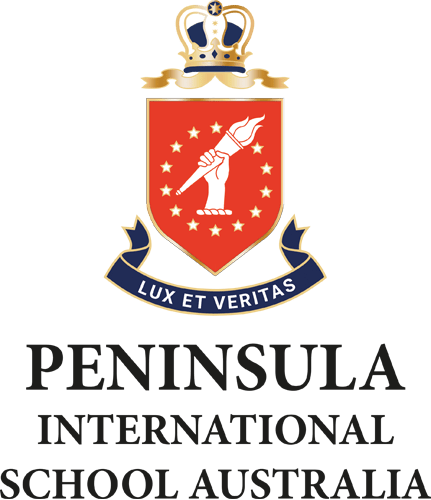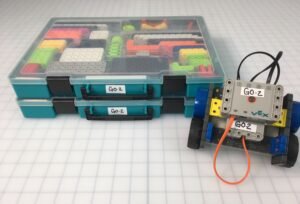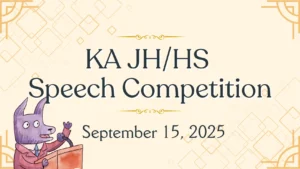Enjoy this short video snippet about Peninsula International School Australia from our 2025 Fall Osaka Expo.
Transcript
We spoke with Kimberly Yip Kai Ling (Senior Manager, Admission & Marketing).
ISTimes Global (00:01): Hi, this is the International School Times Global at the Osaka Education Expo. I’m here with Kimberly. Kimberly, could you introduce yourself?
Peninsula International School Australia (Kimberly) (00:10): I’m Kimberly. I am from Peninsula International School Australia. We are based in Setia Alam uh in the state of Selangor and um yep.
ISTimes Global (00:23): It’s great to meet you.
Peninsula International School Australia (Kimberly) (00:25): Nice to meet you too.
Academics
ISTimes Global (00:26): We’d like to learn a bit about academics at your school. Could you tell us what learning is like?
Peninsula International School Australia (Kimberly) (00:32): So in Malaysia, um there are the main three different curriculums in Malaysia are mainly the British International uh British curriculum. And we have IB curriculum, and also Australia curriculum. Australia curriculum is fairly new in Malaysia. And um in, uh we have established since 2018, and um recent three to four years ago, um many of our local parents and also international parents, they start to like the Australian curriculum, reason being is because Australian curriculum, we don’t focus on book-based. We are 50% um assessment-based and 50% coursework-based. So it gives the flexibility uh for our students, so that they experience uh critical thinking skills. And at the end of the day, what we want to develop is uh all-rounder. So that is um a difference between the IB curriculum, the British curriculum and the Australia curriculum.
School Culture
ISTimes Global (01:43): That sounds like a great academic environment. Um could you tell us a little more about culture at your school? What’s the school culture like?
Peninsula International School Australia (Kimberly) (01:51): So, like I mentioned earlier on, um we don’t focus 100% on academic. We are an all-rounder school. So we have a lot of activities. So for example, uh we have this very interesting subject in our junior school called inquiry. All right? So inquiry is basically a combination of uh science and a little bit of uh humanities. And this is offered in junior school. It’s where, um like I mentioned earlier, we don’t uh focus just on book-based learning. So we inquiry. Every term the students will be exposed to a team and where they will be able to do some uh research based on the topic given. And at the end of the day, they will have to present it to the class. So it’s basically applying what the teacher has teach, the theory in the class, and they have to apply it via practical, practical in terms of like presentation skills. And we also offer a range of um co-curricular activities, which is compulsory during uh school hours, and also after-school activities. So this is paid and it’s after school for an hour. So basically, um we don’t focus just on academic. There are also other activities ranging from football all the way up to swimming, and of course, we do have pickleball as well.
Future Memories
ISTimes Global (03:15): Nice. As students graduate from your school, what are some of the memories that you want them to take away from their time at the school?
Peninsula International School Australia (Kimberly) (03:24): So, I forgot to mention that Peninsula International School, it’s also affiliated to Peninsula Grammar School in Melbourne, Mornington. So they have been in uh Mornington for 60-over years. So we are like a sister campus. So one of the things that um students get to experience is the student exchange program, where we offer to our year eight and our year nine students, they will be able to um have an experience of what is it like studying in Peninsula Grammar for a week, and the students from Peninsula Grammar, they will come to our school for a week for student exchange. So this is not an opportunity that uh many international schools can offer. And apart from that, uh what we emphasize strongly is also our residential trip. So residential trip is where we bring learning out of classroom. So this is where students from year four onwards, all the way up to year 10, they will be out from school um for a day up to a week where we conduct classes out of school. So for example, the um year four students, they will go for a two day, one night trip where they get to enjoy kayaking, camping. This is where they learn how to build relationship between one another and also build their survivor skills. And students, the senior students from year nine and year 10, um they will be away for a week and um they will be enjoying uh scuba diving. So these are the things that you don’t get to experience in school and we hope that with this is something that they bring along, a memory that they bring along when they leave our school.
ISTimes Global (05:11): That was great. Thank you so much for your time.
Peninsula International School Australia (Kimberly) (05:12): Thank you very much.

About Peninsula International School Australia
- Located in Setia Alam, Selangor, Malaysia
- Established in 2018
- Australian curriculum (newer in Malaysia)
- 50% assessment + 50% coursework
- Focus on critical thinking and all-round growth
- Junior “Inquiry” subject (science + humanities)
- Termly research and class presentations
- Compulsory co-curriculars during school hours
- After-school activities (football, swimming, pickleball)
- Sister campus: Peninsula Grammar, Melbourne
- Two-way student exchanges (Years 8–9)
- Residential trips (Y4–Y10): kayaking → scuba diving







